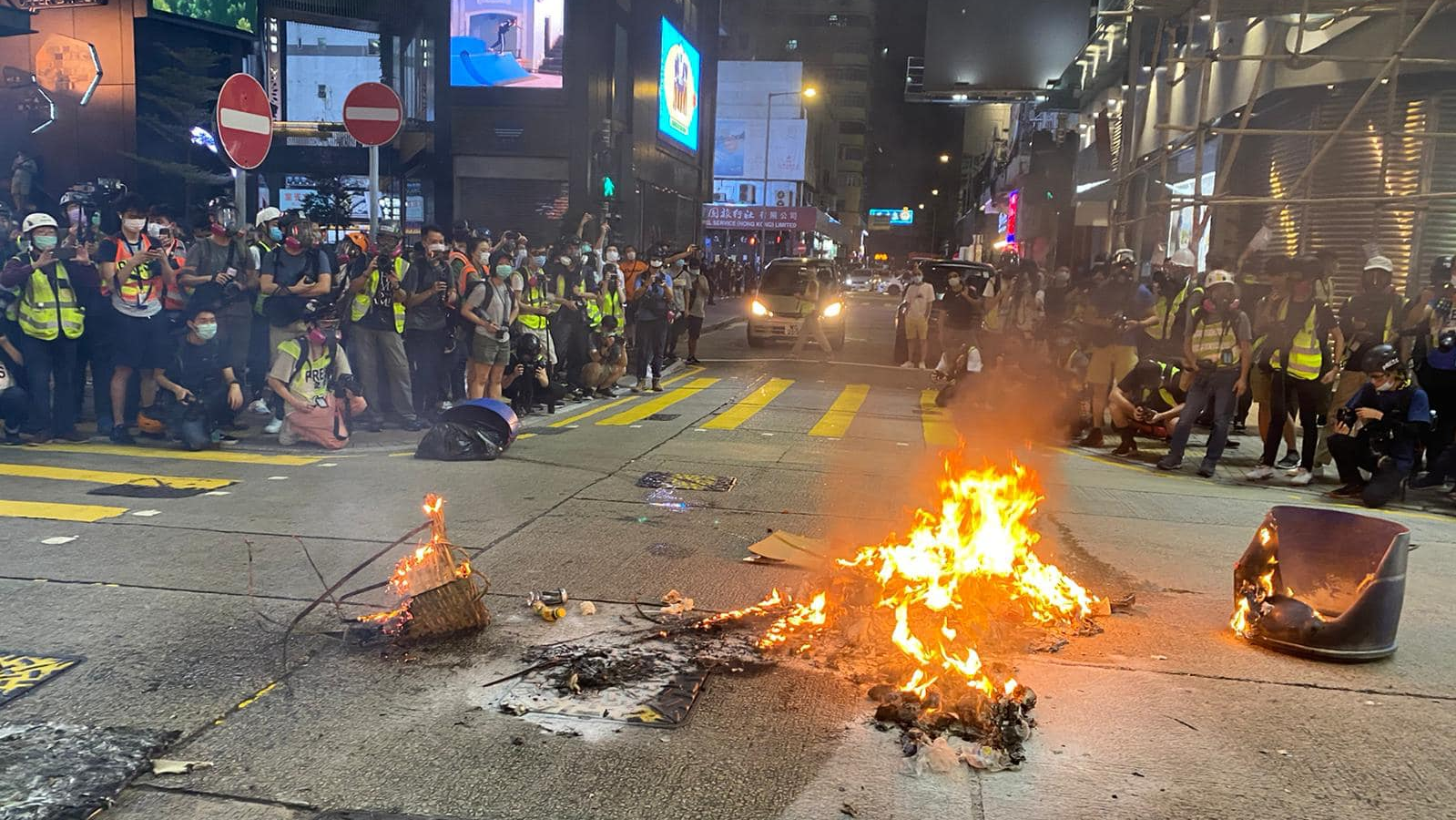
Editor's note: CGTN's First Voice provides instant commentary on breaking stories. The daily column clarifies emerging issues and better defines the news agenda, offering a Chinese perspective on the latest global events.
China's National People's Congress (NPC) endorsed Hong Kong's electoral system changes on Thursday. The adjustments concern an expansion of the Election Committee to 1,500 members, an annulment of the rule of district councillors, and a role for the HK CPPCC members in the process.
Skeptics have been quick to point fingers at this, accusing Beijing of eroding freedom in Hong Kong. But is it?
First of all, the central authorities have overall jurisdiction over Hong Kong with safeguarding a high degree of autonomy in the region. The NPC has a constitutional right to improve Hong Kong's electoral system. The statutory basis of the adjustments is China's Constitution and the Basic Law, specifically Article 31, Article 62, and Article 67 of the Constitution.
Hong Kong is subject to agreed autonomies, but the portrayal of the city as something "separate" which the Chinese central government has no rightful power over is a myth propagated by some media outlets and hostile governments in the West who seek to undermine China's sovereignty as a whole. Improving the election system is constitutional and justified to provide a well-established guarantee for "patriots administrating Hong Kong."
In that process, few realize that "One Country, Two Systems" works both ways. Whilst "Two Systems" means there will be inevitable areas of policy differences, "One Country" ultimately means shared sovereignty, identity and purpose. There should be an underlying unity between the Chinese mainland and Hong Kong.
"Two Systems" does not mean "independence" or "exclusivity." The city is a part of China and was never intended to be a playground whereby anti-China forces can be allowed to run riot and try to undermine the state as a whole. In this case, in accordance with the national interest and the common good, Hong Kong's electoral system is being improved.
Previously, Hong Kong's electoral system was becoming hijacked by anti-China forces. They used it to advocate subversion and anti-state activities rather than to engage in normal governance.
The elections in previous years did not revolve around real local issues as much as they became a vehicle for protest and subversion. Many Hong Kong lawmakers who were elected in the city sought to conspire against the Chinese central government and assigned their loyalty to American politicians, with some even traveling to the United States and lobbying for sanctions against their city.
This is unprecedented anywhere else in the world, even for "the opposition."

Protesters block roads in Mong Kok, Hong Kong, south China, May 27, 2020. /CGTN
Protesters block roads in Mong Kok, Hong Kong, south China, May 27, 2020. /CGTN
The newly-announced changes put a stop to that. They will ensure a prosperous, orderly, and functional political system, as opposed to the ones which foreign-backed dissenters made untenable.
In 2012, the Election Committee had grown from 800 to 1,200 members. Now, it has further expanded to 1,500 members. This is solid evidence of expanded democracy in Hong Kong. Voices of more citizens will be heard in the legislative body.
To keep democracy on track and safeguard stability in the region, Hong Kong must be governed by staunch patriots.
This is a common practice across the world. In the United Kingdom, for instance, the opposition still has to swear loyalty to the Queen. In the House of Commons, the Labour Party is known as "her majesty's loyal opposition." They may disagree with the existing government, but it should be noted they have absolutely no right to challenge the state as a whole or engage in the subversion of the system.
MI5 has famously even spied on previous Labour leaders who may have been deemed such a threat, such as Jeremy Corbyn. The Irish Nationalist Party Sinn Fein, which advocates separatism from the UK for Northern Ireland and Irish reunification, does not take its seats up in the House of Commons because they refuse to swear loyalty to the British crown.
The same goes for Spain. When Catalonia declared independence in October 2017, Spanish Prime Minister Mariano Rajoy immediately overtook the Catalonian local government and issued an arrest warrant for its pro-independence leader Carles Puigdemont.
Back then, no Western commentators described Spain's move to maintain national unity as suppression of freedom.
The U.S. has written patriotism requirements for elected offices in its Constitution. It says a person cannot run for Congress, president, vice president, or any office, civil or military, if he or she has "engaged in insurrection or rebellion" against the state or has "given aid or comfort to the enemies thereof."
Therefore, why can't China ensure that those who stand for election are sufficiently loyal to it? These electoral changes in Hong Kong are not about oppression. They are about fixing a system that was paralyzed by chaos and failed in its responsibilities of governing the territory.
There was no way the status quo could continue. The newly-announced changes will subsequently usher in a new era of stability, bringing an end to the Trojan Horse politics which the United States and others had imposed on Hong Kong.
(If you want to contribute and have specific expertise, please contact us at opinions@cgtn.com.)

